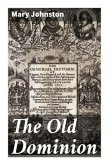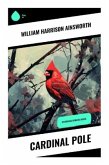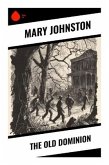Mary Johnston's "The Witch" is a compelling historical novel that intricately weaves themes of superstition, societal norms, and personal turmoil against the backdrop of early 18th-century New England. Employing a realistic literary style, Johnston's narrative delves into the life of a young woman accused of witchcraft, exploring the complex interplay between fear and power. The novel utilizes rich, descriptive language to evoke the period's oppressive atmosphere, allowing readers to empathize with the protagonist's harrowing journey through accusation, alienation, and resilience. Johnston, a prominent figure in early 20th-century American literature, was deeply influenced by the socio-political climate of her time, particularly the women's suffrage movement and the historical injustices of her ancestors. Her scholarly interest in history and social issues is reflected in "The Witch," where she confronts the consequences of societal hysteria and the role of women in these turbulent times. Johnston's dedication to justice and representation adds layers of depth to her characters, reflecting her own beliefs and experiences. For readers intrigued by historical fiction that challenges patriarchal narratives and explores the depths of human courage, "The Witch" is a must-read. This novel not only provides insight into a grim chapter of American history but also serves as an evocative commentary on the repercussions of fear-driven society. Highly recommended for those seeking a thoughtful examination of morality, identity, and resilience.
Bitte wählen Sie Ihr Anliegen aus.
Rechnungen
Retourenschein anfordern
Bestellstatus
Storno








